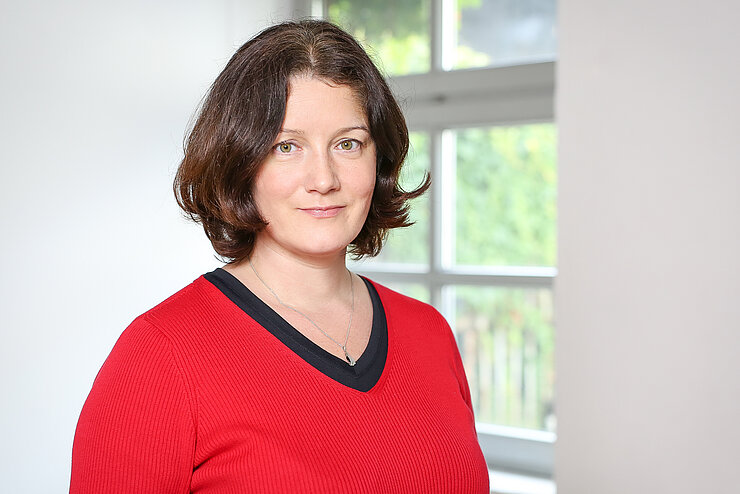
Computational Biology for Infection Research

Research focus
The primary objective of our research at the CiiM is to establish data-driven computational approaches that further advance individualized infection medicine in the clinics, such as methods that more comprehensively and rapidly identify the relevant pathogens from infected patient samples than what is possible with today’s clinical routine. To this end, we are working innovative technologies combining both experimental and computational analyses using high-throughput sequencing of patient samples. This approach allows for direct detection and characterization of pathogens from complex samples, enabling their rapid and accurate identification. Additionally, we are interested in studying pathogen-host interactions, characterizing their antimicrobial resistances, virulence factors and in exploring the dynamics of microbial communities in the context of infectious disease progression.
Research focus
The primary objective of our research at the CiiM is to establish data-driven computational approaches that further advance individualized infection medicine in the clinics, such as methods that more comprehensively and rapidly identify the relevant pathogens from infected patient samples than what is possible with today’s clinical routine. To this end, we are working innovative technologies combining both experimental and computational analyses using high-throughput sequencing of patient samples. This approach allows for direct detection and characterization of pathogens from complex samples, enabling their rapid and accurate identification. Additionally, we are interested in studying pathogen-host interactions, characterizing their antimicrobial resistances, virulence factors and in exploring the dynamics of microbial communities in the context of infectious disease progression.
Working in the interdisciplinary environment with strong translational focus of the CIIM provides us with exciting and truly unique opportunities to create innovative technologies that will improve the medical treatments for patients with infectious diseases.

Since 2014, Alice McHardy leads the Department of “Computational Biology for Infection Research” at the Helmholtz Centre for Infection Research (HZI) and is a full professor in the Carl-Friedrich-Gauss Department and Department of Life Sciences at the Technical University of Braunschweig, Germany.
Alice Carolyn McHardy holds a diploma in biochemistry and a doctoral degree (Dr. rer. nat) in bioinformatics, both from Bielefeld University in Germany. From 2005 to 2007 she first was a postdoc and then a permanent staff member in the Bioinformatics and Pattern Discovery Group at the IBM T.J. Watson Research Center in Yorktown Heights, USA.
From 2007 to 2012 she led the independent research group for Computational Genomics and Epidemiology at the Max Planck Institute of Computer Science in Saarbrücken. In 2010, she was appointed Chair of Algorithmic Bioinformatics at Heinrich Heine University Düsseldorf.
Alice McHardy has been recognized as a Highly Cited Researcher by Clarivate since 2020 and is co-organizer of the CAMI, the initiative for the Critical Assessment of Metagenome Interpretation, a community-driven initiative promoting the establishment of best practices in computational metagenomics by organizing benchmarking challenges for the field.
Research project
Comprehensive microbial pathogen detection for liver cirrhosis patients with suspected infections
Our project focuses on utilizing metagenomics for the analysis of ascites samples obtained from patients with liver cirrhosis. In collaboration with Prof. Markus Cornberg and Prof. Ben Maassoumy (Department of Gastroenterology, Hepatology, Endocrinology at Hanover Medical School), we leverage the power of metagenomic sequencing to detect and characterize potential pathogens present in ascitic fluid. By employing state-of-the-art sequencing technologies, we can obtain high-resolution data and apply advanced bioinformatics tools to accurately identify and characterize the microbiome from infected patient samples. This research project will not only enhance our understanding of the role of microbiota and pathogens in cirrhosis patients with suspected infections, but also pave the way for improved diagnostics and therapeutic interventions for these patients.




Publications
1. Meyer, F., Fritz, A., Deng, Z.L., Koslicki, D., Lesker, T.R., Gurevich, A., Robertson, G., Alser, M., Antipov, D., Beghini, F.,…, McHardy, A.C., et al. (2022). Critical Assessment of Metagenome Interpretation: the second round of challenges. Nat Methods 19, 429-440. 10.1038/s41592-022-01431-4 Critical Assessment of Metagenome Interpretation: the second round of challenges | Nature Methods
2. Fritz, A., Bremges, A., Deng, Z.L., Lesker, T.R., Götting, J., Ganzenmueller, T., Sczyrba, A., Dilthey, A., Klawonn, F., and McHardy, A.C. (2021). Haploflow: strain-resolved de novo assembly of viral genomes. Genome Biol 22, 212. 10.1186/s13059-021-02426-8 Haploflow: strain-resolved de novo assembly of viral genomes | Genome Biology | Full Text (biomedcentral.com)
3. Khaledi, A., Weimann, A., Schniederjans, M., Asgari, E., Kuo, T.H., Oliver, A., Cabot, G., Kola, A., Gastmeier, P., Hogardt, M., McHardy, A.C., Häussler, S., et al. (2020).Predicting antimicrobial resistance in Pseudomonas aeruginosa with machine learning-enabled molecular diagnostics . EMBO Mol Med 12, e10264. 10.15252/emmm.201910264 Predicting antimicrobial resistance in Pseudomonas aeruginosa with machine learning‐enabled molecular diagnostics | EMBO Molecular Medicine (embopress.org)
4. Sczyrba, A., Hofmann, P., Belmann, P., Koslicki, D., Janssen, S., Dröge, J., Gregor, I., Majda, S., Fiedler, J., Dahms, E.,…, McHardy, A.C. (2017). Critical Assessment of Metagenome Interpretation-a benchmark of metagenomics software. Nat Methods 14, 1063-1071. 10.1038/nmeth.4458 Critical Assessment of Metagenome Interpretation—a benchmark of metagenomics software | Nature Methods
Further information
For further information on projects, openings or collaboration inquiries from clinicians, please contact Alice McHardy.
